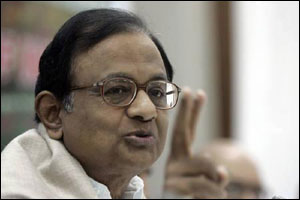The Budget is disappointing because it refuses to fundamentally repudiate fiscal populism, writes Arvind Subramanian.
Given the scale of India’s economic difficulties (decelerating growth and mounting macro-economic vulnerabilities), there was one and only metric by which this Budget would and should be assessed. Had this United Progressive Alliance (UPA) government fundamentally repudiated fiscal populism because it believed that such populism was no longer electorally popular? All the signs in recent months were encouraging in this regard. Alas, the Budget’s answer to that question seems to be: not really. On that litmus test, this Budget has fallen short. Why so?
 True, the deficit target is on a downward trajectory. But that is just a target. The headline number that stands out is overall expenditures, which are slated to rise by close to 16.5 per cent. On the government’s own projection for nominal GDP (13.5 per cent, which is reasonable but not conservative), this would represent a substantial increase in the expenditure-to-GDP ratio. And these are not temporary but structural increases with permanent consequences.
True, the deficit target is on a downward trajectory. But that is just a target. The headline number that stands out is overall expenditures, which are slated to rise by close to 16.5 per cent. On the government’s own projection for nominal GDP (13.5 per cent, which is reasonable but not conservative), this would represent a substantial increase in the expenditure-to-GDP ratio. And these are not temporary but structural increases with permanent consequences.
To be fair to the government, this is a pre-election year when the temptations of giveaways are greater and less resistible. But these are not normal times. India is extremely vulnerable without the luxury of making do with modest responses. And at such a time, sharp increases in overall expenditures are eyebrows-raise-worthy odd.
How odd? The planned expenditure translates roughly into a real per capita increase of about seven per cent. That is roughly the rate at which expenditures per capita have been rising for over a decade now, so the Budget does not seriously reverse that trend. The failure to do so at a time of fragile finances is striking. The Budget continues a trend that would make Indians feel entitled well before India becomes rich.
The government could respond that higher expenditures will be more than financed, so that the overall deficit will come down. But here a few points are worth making. The first relates to the realism of the planned revenue measures (a combination of taxes on the very rich and some indirect tax increases).
If GDP growth underperforms or oil prices rise or the exchange rate does not strengthen, targets will prove elusive. The second relates to the realism of the expenditure numbers: this year’s deficit target has been met thanks to sharp compressions in expenditures. Might some of the compression merely be postponement?
Perhaps most importantly, even if next year’s Budget targets are met, the government has set itself a much more difficult task for the medium term by the structural increases in expenditures. Note that the bulk of the revenue increases are one-off, so that beyond this Budget, structural tax increases, such as the new goods and services tax (GST), will have to carry the extra load of financing these new increases in order to keep the medium-term deficit target sustainable.
One response of the defenders of the Budget is to point to the composition of spending that is weighted towards more public investment and less redistribution. At this stage it is difficult to assess the quantitative magnitudes of these categories of spending; but if true, they should inform the overall assessment of the Budget.
A bias towards investment over redistribution is of economic significance because rising capital expenditures could raise growth and hence not undermine medium-term fiscal sustainability. It is of political significance because it allays fears that the Indian state is reduced to effecting redistribution without providing public goods. As Indira Rajaraman insightfully pointed out, European history suggested that sustaining legitimacy in the state requires public good provision almost as a precondition for the state taking on the redistributive role.
But in India, the iffy quality of such spending and the leakages involved should make one cautious about the growth-enhancing potential of public investment expenditures. Moreover, if the ability of the state to provide public goods (say, in the form of infrastructure) is limited, the Indian state’s redistributive role will always be challenged. And the more the state presses ahead with redistribution - as UPA-I and II have done - the greater the incentives for citizens to become disengaged from the state which, in turn, will aggravate the problem of state capacity and legitimacy.
In a very crude sense, this Budget will appear classically populist: soak the rich to pay for more redistribution. But that is not why it has fallen short: more taxes on the rich may well be warranted and addressing redistribution in India remains pressing.
This Budget has fallen short in continuing the rapid build-up of expenditures, of a durable nature, at a time when economic circumstances - not far from the brink of macroeconomic crisis - warrant the opposite. This Budget has fallen short in not moving away enough from the old assumptions of Indian political economy.
The last few months seemed to suggest encouragingly that prudence, not populism, would be not just good economics but also good politics; and that the finance minister had buy-in from the higher-ups on this important proposition. It may turn out that the last few months flattered only for this Budget to deceive.
The writer is Senior Fellow, Peterson Institute for International Economics and Centre for Global Development











 © 2025
© 2025